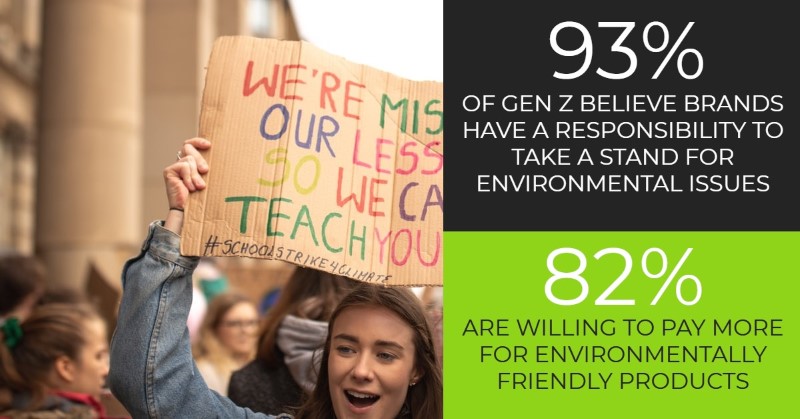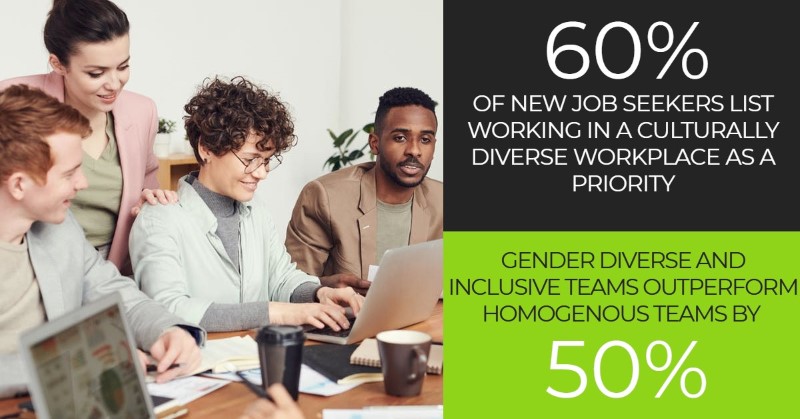7 HR Trends That Will Define 2020
Not too long ago, 2020 was looked upon as science fiction or a far-flung future. How quickly time flies, and with it the structures and culture of businesses. As we enter this new decade it's high time we look to the actual future and at some of the trends that will play a major role in HR in the coming years.

AI, Automation and Soft Skills
AI and automation are an integral part of many industries, including employment and HR, with many companies using AI to pre-sort job applicants for keywords or desired experience before anyone even reads them. In broader terms, HR AI and automation can aid in business compliance, finance, paperless employee onboarding, employee management, reward and recognition and more, freeing up HR personnel to focus more on the human side of their job rather than administration.
In the wider workplace environment, AI and automation have been and continue to be a hotly debated topic when it comes to human employment. The fear of people being made redundant or mass unemployment due to automation is largely unfounded but a change in approach to work and hiring is needed to deal with the change in the marketplace that comes with automation.
In a march 2019 study, management consulting firm McKinsey & Company estimated that by 2030 “25-46% of current work activities in Australia could be automated” and “between 3.5 million and 6.5 million full-time equivalent positions could be displaced, and between 1.8 million to 5.0 million workers may need to change professions to find a new job”.
As a result, moving forward, uniquely human skills, commonly called “soft skills” will be more and more vital in employees and potential hires. Soft Skills refer to a range of abilities outside the scope of current AI, including conflict, stress and time management, communication skills, cultural and emotional IQ, creativity, persuasion, collaboration and adaptability. A 2018 Linkedin study found that 57% of business leaders feel think that soft skills are more important than hard skills. With the increase in automation, the need for adaptable, soft skilled employees will increase.
Mental Health Awareness
91% of Australians believe that mental health in the workplace is important. That by itself is pretty overwhelming, but when you consider that the same report found that only 88% of Australians considered physical workplace safety as important, mental health concerns definitely spring to the fore. Rather shockingly, the same report also found that only 53% or Australian thought their place of employment was mentally healthy and only 56% believe that their senior leaders value mental health. When it comes to Gen Z, mental health is extremely important, with 91% of Gen Z reporting physical or emotional symptoms due to stress or mental illness within the last year.

Given that mental health issues can greatly affect productivity and profitability, looking after the mental health of employees will become more of a priority moving forward. The 2019 Mind Share Partners Mental Health Report found that 50% of Millennials and 75% of Gen Z had left positions due to mental health issues. Staff turnover combined with time taken off due to mental health issues – one in three Australian employees took time off in 2017 for mental health or stress reasons – should make mental health initiatives a priority for any HR professional going forward.
Aside from more overtly mental health focussed initiatives, such as RUOK day, contracting an Employee Assistance Program (EAP), addressing Work/Life balance of Work/Life integration can also foster a more stress free environment conducive to mental health. Another could be the introduction of a new position – a CMO or CHO Chief Mental Health Officer/Chief Happiness Officer, tasked with overseeing strategies and initiatives to improve working conditions and improve overall mental health.
Gen Z Enters the Workforce
2020 will see Gen Z – those born between 1997 and 2012 - start to enter the workforce en-masse. There are around 4.43 million Gen Z in Australia and around 2.4 billion worldwide. While only a portion of them will be entering the work force in 2020, the values of Australia’s youngest working generation will definitely have a major impact for a number of reasons, including but not limited to connectivity, privacy, mental health, environmentalism, inclusivity and sustainable values.

While the exact number of protestors who attended the global climate strikes in September 2019 are unknown, with The Guardian estimating 6 million attendees and 350.org estimating 7.6 million, one thing that is for certain is that Gen Z made up a majority of protestors. Similarly, the Extinction Rebellion protest movement is made up, in a large part, by Gen Z and younger Millennials. Activism and the environment are obviously important to Gen Z as a whole, but this has more impact than just protests. According to a Unidays study 93% of Gen Z are of the opinion that brands have a responsibility to take a stand on environmental issues, and 82% are willing to pay more for an environmentally friendly product. There’s no reason to suppose that this strong belief will not carry over to job seeking and work culture.
Gen Z are also strong proponents of inclusivity, showing overwhelming support for religious freedom, marriage equality and LGBTQI rights, as well as gender equality.
While Gen Z may not bring one particular trend to the fore when it comes to HR concerns in 2020 and beyond, the influx of Gen Z employees will add extra emphasis to a number of other growing trends.
Work/Life balance and Integration, Flexible Work Arrangements
An increasingly connected world has drastically changed how people approach their work life. Remote working and telecommuting has becoming more and more common. Not too long ago, work/life balance was about being able to switch off, both literally or metaphorically at the end of a day in the office and head home to relax, but with connectivity, the office can and does follow workers home, whether they answer a few emails that come in overnight, field calls from clients or employers in different time zones, or continue working on a project stored on a shared virtual workspace. Australians, it turns out, are not great when it comes to finding work/life balance.
The Australian Work and Life Index report found Australia ranked 27 out of 35 OECD countries when it comes to work/life balance. 20% of men and 7% of women work more than 50 hours a week, and women, especially single mothers and carers have even worse work/life balance due to a higher portion of domestic and caring work added on top of traditional work hours.

Long hours can be a stressor, but one of the factor leading employees to working long hours is that over 46% of Australians are living paycheque to paycheque, prompting them to work longer hours for overtime or to make themselves “invaluable” to their employer to ensure job security. The growth of contracting and the gig economy – independent contractors on an hourly rate rather than having the benefits that come with employment - has also seen an increase in workplace stress, something that costs employers around $10 billion a year.
Limiting this stress, staff turnover and the resulting productivity loss is a major HR trend moving forward. Providing staff with flexible work options can have been shown to reduce stress and increase job satisfaction, so offering flexible working hours, the option to work from home, job sharing, parental/carer leave, subsidised child care and the like could provide a great boon to business. Acknowledging employee effort and milestones both in and outside of the office can also add to job satisfaction and reduce stress. Letting employees know that what they are doing is acknowledged, appreciated and awarded can increase job satisfaction and reduce absenteeism.
Diversity and Inclusion
Australia is a very culturally and ethnically diverse country, and going forward, employment trends need to reflect this more and more. Over 60% of new job seekers list that working in a culturally diverse workplace is one of their priorities, and according to global research and advisory firm, Gartner, “gender-diverse and inclusive teams outperformed gender-homogeneous, less inclusive teams by 50%, on average.”

Gender and ethnic diversity are only two parts of the puzzle. Age and cognitive diversity also factor heavily into inclusion culture. Having teams with different age groups, ethnicities, styles of thinking or approach and gender allows a company to more easily understand and serve a company’s consumers.
Employee Activism
In September 2019, tension between business leaders and the Australian government flared over business activism, with the government being of the opinion that Australian businesses were taking up too many activist causes. Whilst this stoush was in full swing, CEDA (Committee for Economic Development of Australia) released a major report that showed that 70% of the Australian public thought that businesses should place as much importance on societal and environmental performance as they do on economic performance, and more than 75% supporting business leaders in speaking out about societal and environmental issues.
While the public is in general behind the activism of companies, from Australian business support for the climate protests to the Gillette campaign calling out toxic masculinity, businesses themselves are less prepared for employee activism. A recent survey by Herbert Smith Freehills showed that the main causes for Australian employee activismhad changed in recent years. In the 80s employment activism dealt mostly with pay and work conditions, but this new survey shows that the five major causes for activism in Australia are automation, diversity, surveillance, pay and corporate strategy. Globally 46% of respondents said that environmental concerns were also a trigger for activism. With the rapid rise of climate strikes and concerns around climate change, this number is all but guaranteed to rise.
Developing systems that allow employees to have their say and influence business practises without fear of reprisal will be crucial going forward when it comes to understanding and dealing with employee activism.
Corporate Sustainability
Millennials and Gen Z make up a significant portion of the work force and, in general, have a different generational ethos than those that came before. A 2018 survey by Nielsenshows that globally, Gen X (79%), Millennials (85%) and Gen Z (80%) rated corporate sustainability programs as important or highly important. While Baby Boomers and the Silent Generation also rated sustainability programs as important, with 72% and 65% of respondents respectively, younger generations make up both the bulk of the workforce and active consumers. As we move forward, the younger generations will not just make up an ever increasing proportion of the workforce, they will also take up leadership positions, bringing with them the drive for ethical, sustainable corporate culture
Environmental sustainability is only one of the three pillars of sustainability. Economic and Social sustainability form the other two pillars. Economic sustainability refers to ethical responsibility and brand management as much as it does to profit. Australia has been hit hard with business ethics scandals in the last few years, especially in the banking and aged care sectors, tarnishing brands as well as lowering consumer confidence in business as a whole. With both consumer and employee activism rising year on year, ensuring that a company takes an ethical approach to business can stave off a lot of problems and still allow for economic growth.
Social sustainability refers to the positive and negative impacts a business can have on employees, stakeholders, customers and the wider community as a whole. Equality, corporate structure and accessibility to management, wellbeing, gender roles and privacy are some of the internal issues relating to social sustainability. Given the ever increasing importance of mental health awareness and the demand for inclusivity and diversity, social sustainability has become more important by the day.












